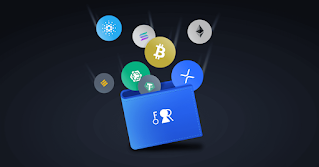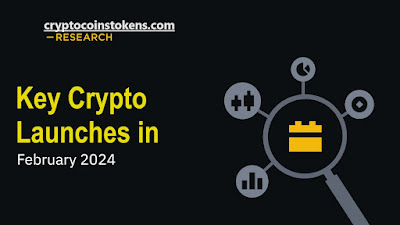Securing and Exploring Cryptocurrency Wallets : Essential Precautions, Features and Options
Securing Your Crypto Wallet: Essential Precautions and Examples
With the rise of cryptocurrencies, securing your digital assets has become paramount. Unlike traditional banking systems, where fraud protection and account recovery options are available, cryptocurrencies offer no such safety nets. Here's a guide on how to secure your crypto wallet effectively, along with some precautions and examples to illustrate best practices.
Examples:
Hardware Wallets: John uses a Ledger Nano S to store his Bitcoin securely. He keeps the device in a physically secure location and only connects it to his computer when needed.
Backup Strategy: Sarah writes down her recovery phrase on a piece of paper and stores it in a fireproof safe at home. She also makes a digital copy stored on an encrypted USB drive kept in a safety deposit box at her bank.
Two-Factor Authentication: Alex enables 2FA on his mobile wallet app, requiring a unique code sent to his phone every time he logs in or initiates a transaction.
Phishing Awareness: Emily receives an email claiming to be from her wallet provider, asking her to log in to resolve an issue. Instead of clicking the link, she visits the official website directly to verify the message's authenticity.
Software Updates: Mark regularly checks for updates to his wallet software and installs them promptly to ensure he's using the latest version with improved security features.
Exploring Cryptocurrency Wallets: Features and Options
Cryptocurrency wallets are essential tools for managing and storing digital assets securely. With various options available, each offering unique features and benefits, choosing the right wallet can significantly impact your crypto experience. Let's explore some popular cryptocurrency wallets along with their features:
1. Ledger Nano S:
- Hardware Wallet: Ledger Nano S is a hardware wallet known for its robust security features.
- Offline Storage: Private keys are stored offline, providing protection against online threats.
- Multi-Currency Support: It supports a wide range of cryptocurrencies, including Bitcoin, Ethereum, and Litecoin.
- User-Friendly Interface: The device features a simple interface, making it suitable for both beginners and experienced users.
- Backup and Recovery: Users can easily backup and recover their wallet using a 24-word recovery phrase.
2. Trezor Model T:
- Hardware Wallet: Trezor Model T is another popular hardware wallet renowned for its security features.
- Touchscreen Display: It features a touchscreen display for easy navigation and interaction.
- PIN Protection: Users can set up a PIN code to secure access to their wallet.
- Passphrase Support: Trezor Model T supports passphrase encryption for added security.
- Open-Source Software: The wallet's software is open-source, allowing users to verify its security and integrity.
3. Exodus Wallet:
- Software Wallet: Exodus is a desktop and mobile software wallet known for its sleek design and user-friendly interface.
- Multi-Currency Support: It supports a wide range of cryptocurrencies, including Bitcoin, Ethereum, and Ripple.
- Built-in Exchange: Users can exchange cryptocurrencies directly within the wallet through its built-in exchange feature.
- Portfolio Tracker: Exodus includes a portfolio tracker, allowing users to monitor their cryptocurrency holdings easily.
- Backup and Restore: Users can backup and restore their wallet using a 12-word recovery phrase.
4. MyEtherWallet (MEW):
- Web Wallet: MyEtherWallet is a web-based wallet specifically designed for Ethereum and Ethereum-based tokens.
- Access to Ethereum Ecosystem: Users can access various Ethereum dApps (decentralized applications) and interact with smart contracts.
- Private Key Control: Users have full control over their private keys, enhancing security.
- Integration with Hardware Wallets: MEW supports integration with hardware wallets like Ledger and Trezor for added security.
- Offline Transactions: Users can generate and sign transactions offline for enhanced security.
5. Trust Wallet:
- Mobile Wallet: Trust Wallet is a mobile wallet available for both iOS and Android devices.
- Multi-Currency Support: It supports a wide range of cryptocurrencies and tokens, including Bitcoin, Ethereum, and Binance Coin.
- Simple Interface: Trust Wallet offers a simple and intuitive interface, making it easy to use for beginners.
- Decentralized Exchange (DEX) Integration: Users can trade cryptocurrencies directly within the wallet using decentralized exchanges.
- Biometric Authentication: The wallet supports biometric authentication (such as fingerprint or face ID) for secure access.



Comments
Post a Comment